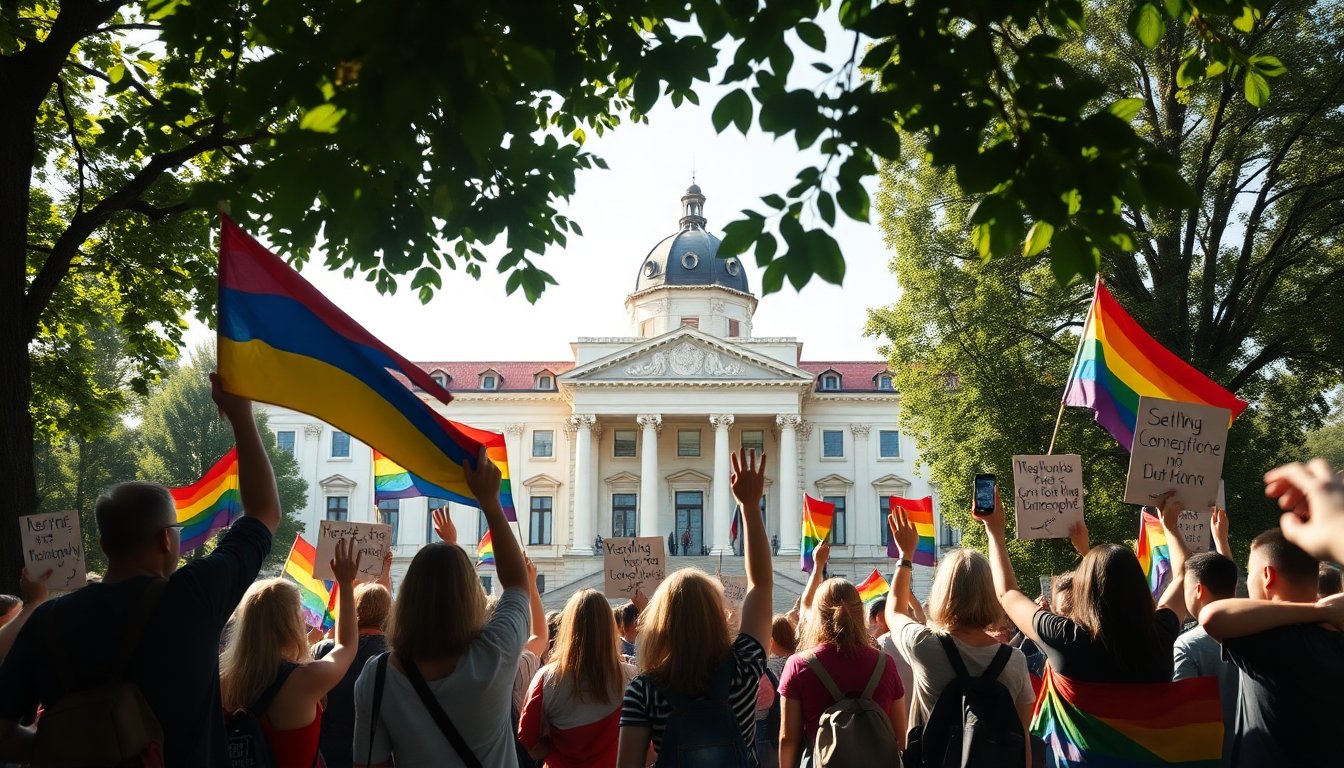Table of Contents
The political landscape in Slovakia has undergone a significant shift with the approval of a constitutional amendment limiting gender recognition to only male and female. This crucial decision, enacted by the Slovak parliament, has serious implications for the rights of same-sex couples and the broader LGBTQ+ community. The amendment passed with a narrow majority, indicating a profound transformation within the nation and raising concerns about its future relationship with the European Union.
The amendment’s provisions and implications
On a significant Friday, Slovak lawmakers convened in the 150-seat lower house, ratifying the amendment with the minimum required votes—90 in favor. This decision saw support from several conservative opposition members, indicating a united front among those promoting traditional values. The amendment specifies that the only recognized genders are male and female. Furthermore, it requires that educational curricula align with the cultural and ethical guidelines established in the constitution.
Political motivations behind the amendment
Prime Minister Robert Fico has characterized this constitutional amendment as a necessary response to what he perceives as the intrusion of progressive politics. He claims it aims to safeguard Slovakia’s cultural and spiritual heritage, effectively creating a barrier against contemporary societal changes. Fico’s statements resonate with certain U.S. political rhetoric, declaring that “there are two sexes, male and female” as defined at birth. This assertion reflects a binary view of gender that many advocates consider outdated.
Concerns raised by opposition and advocacy groups
The response to the amendment has been mixed, with notable opposition expressing worries about its implications for human rights. Michal Simecka, leader of the Progressive Slovakia party, criticized the amendment, arguing it could harm the citizens of Slovakia and jeopardize the country’s standing within the European Union. He cautioned that such legislation might undermine Slovakia’s commitment to international legal frameworks.
Potential consequences for Slovakia’s EU membership
Slovakia’s relationship with the European Union faces scrutiny as a recent constitutional amendment raises significant concerns about compliance with EU laws. The country’s emphasis on sovereignty over cultural and ethical issues may conflict with established EU regulations, particularly in the realm of human rights protections. Maria Kolikova, a member of the Freedom and Solidarity party, has warned that this amendment could jeopardize EU funding and threaten Slovakia’s membership in the Council of Europe, a prominent rights organization.
International backlash and local protests
The recent constitutional amendment has sparked widespread international condemnation, particularly from human rights organizations such as Amnesty International. The organization criticized the changes, claiming they undermine the rights of LGBTQ+ individuals and reproductive freedoms. Rado Sloboda, head of Amnesty Slovakia, voiced his concerns, indicating that the parliament’s decision contradicts international legal standards.
Since regaining power, Prime Minister Fico has encountered substantial public opposition. Many citizens have taken to the streets to protest his administration’s perceived authoritarian measures and restrictions on rights. His government faces accusations of tightening its grip on media outlets deemed unfavorable and appointing allies to key cultural institutions.
Shifting alliances within the EU
The administration led by Robert Fico has altered Slovakia’s foreign policy, moving closer to Moscow while distancing itself from established EU norms. As one of the few Kremlin allies in the European Union, Fico’s approach raises concerns regarding Slovakia’s future direction on both domestic and international fronts.
Slovakia’s recent constitutional amendment signifies a pivotal moment in the ongoing discourse about gender rights and national identity. The repercussions of this decision will impact not just Slovakia, but also the broader European Union, as member states confront the challenge of reconciling national interests with overarching human rights commitments.


